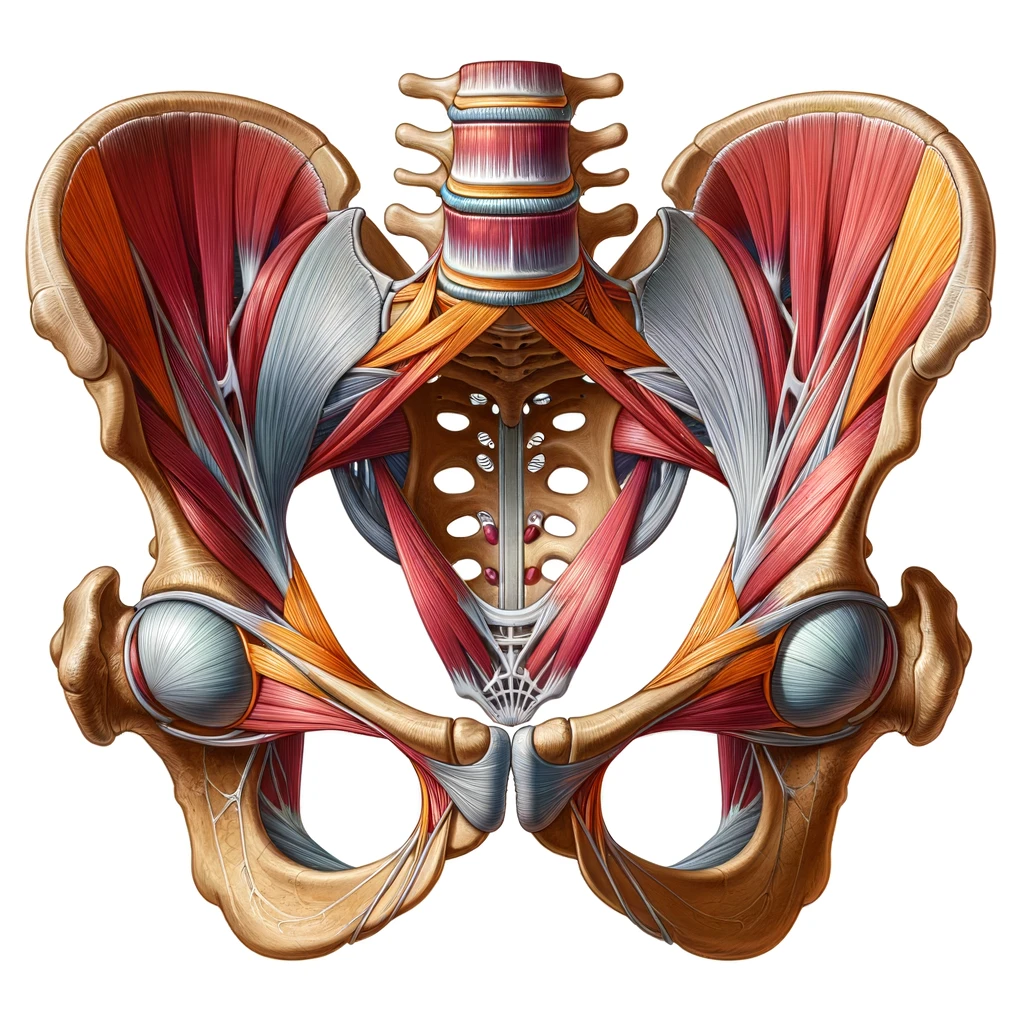Back
Reverse Kegels: A Comprehensive Guide to Pelvic Floor Muscle Lengthening
By Dr. Christine Martirez PT, DPT on 1/29/2024

While Kegel exercises have long been associated with pelvic floor health, the often-overlooked counterpart, reverse Kegels, plays a crucial role in promoting muscle lengthening and flexibility. Let's explore what reverse Kegels are, understand who can benefit from incorporating them into their routine, and discuss the valuable role of pelvic floor physical therapy in optimizing pelvic health.
Understanding Reverse Kegels
Kegel exercises involve contracting and lifting the pelvic floor muscles, primarily focusing on strengthening. In contrast, reverse Kegels involve consciously relaxing and lengthening these muscles. This intentional release and elongation help counteract tension and promote a more balanced pelvic floor.

Performing Reverse Kegels
Find a Comfortable Position:
Begin in a comfortable seated, lying, or all fours position, focusing on relaxation and deep breathing.Inhale and Expand:
Inhale deeply, allowing the diaphragm to expand. As you breathe in, visualize the pelvic floor muscles lengthening and relaxing. Allow the muscles to naturally elongate without force.Exhale and Release:
Exhale slowly, imagining a gentle release of tension in the pelvic floor.Repeat with Control:
Perform the exercise with control, focusing on the sensation of relaxation and lengthening. It's essential to avoid straining or pushing too hard.

Who Can Benefit from Reverse Kegels
Individuals with Pelvic Pain:
Reverse Kegels can be beneficial for those experiencing pelvic pain or discomfort, especially if it is associated with muscle tension. The lengthening aspect of reverse Kegels helps alleviate tightness.Men with Premature Ejaculation:
Men dealing with premature ejaculation, often linked to pelvic floor muscle overactivity, may find relief through reverse Kegels. The relaxation achieved can contribute to improved ejaculatory control.Those with Hypertonic Pelvic Floor Muscles:
Hypertonic pelvic floor muscles, characterized by excessive tension, can benefit from the elongating effects of reverse Kegels. This helps restore a healthier balance to the pelvic floor.Individuals with Overactive Bladder:
Conditions such as overactive bladder can involve involuntary contractions of the pelvic floor muscles. Reverse Kegels aid in promoting relaxation, potentially reducing urgency and frequency.And many other pelvic floor dysfunctions!
The Role of Pelvic Floor Physical Therapy
Pelvic floor physical therapy is a specialized field that focuses on optimizing pelvic health through targeted exercises and techniques. Here's how it can support the practice of reverse Kegels:
Customized Assessment:
Pelvic floor physical therapists conduct personalized assessments to identify muscle imbalances, tension, and dysfunction. This allows for a tailored approach to include reverse Kegels as needed.Guidance on Technique:
Therapists provide detailed guidance on the proper technique for reverse Kegels, ensuring individuals perform the exercises effectively and without strain.Incorporating into Treatment Plans:
Reverse Kegels are often integrated into comprehensive treatment plans developed by pelvic floor physical therapists. These plans address individual needs and may include a variety of exercises and therapies.Using Whole Body Approach:
Understanding that the pelvic floor is just one piece of a very large puzzle when approaching pelvic floor dysfunctions. Much like traditional Kegels, Reverse Kegels should be seen as a tool in the toolbox, not a one-size-fits all solution.
Reverse Kegels play a pivotal role in promoting pelvic floor muscle lengthening and relaxation. Whether you're dealing with pelvic pain, overactive bladder, premature ejaculation, or other pelvic floor dysfunctions, incorporating reverse Kegels into your routine can contribute to a healthier pelvic floor. For personalized guidance and a comprehensive approach to pelvic health, consulting with a pelvic floor physical therapist is a valuable step toward unlocking the full potential of reverse Kegels and achieving a balanced and resilient pelvic floor.
At Pelvic Health Physical Therapy, our physical therapists will provide you with a thorough evaluation to determine what the best treatment plan will be for you. We understand how inhibiting pain and stiffness can be, and we want to help get you back to comfortably living your life. We'll help lift all of your physical stresses away! Please email receptionmadison@pelvichealthnj.com to book an appointment, or call our office at 908-443-9880.
Read More:
How Chronic Pelvic Congestion in Men Contributes to Prostatitis By Shannon Strauch, PTA, STMT-1 on 12/11/2024 How lymphatic issues can cause symptoms of prostatitis Prostatitis and Tight Pelvic Floor Muscles: A Comprehensive Guide By Shannon Strauch, PTA, STMT-1 on 12/10/2024 How a tight pelvic floor can be the reason for prostatitis symptoms
Are you ready to live pain free?
Request An Appointment